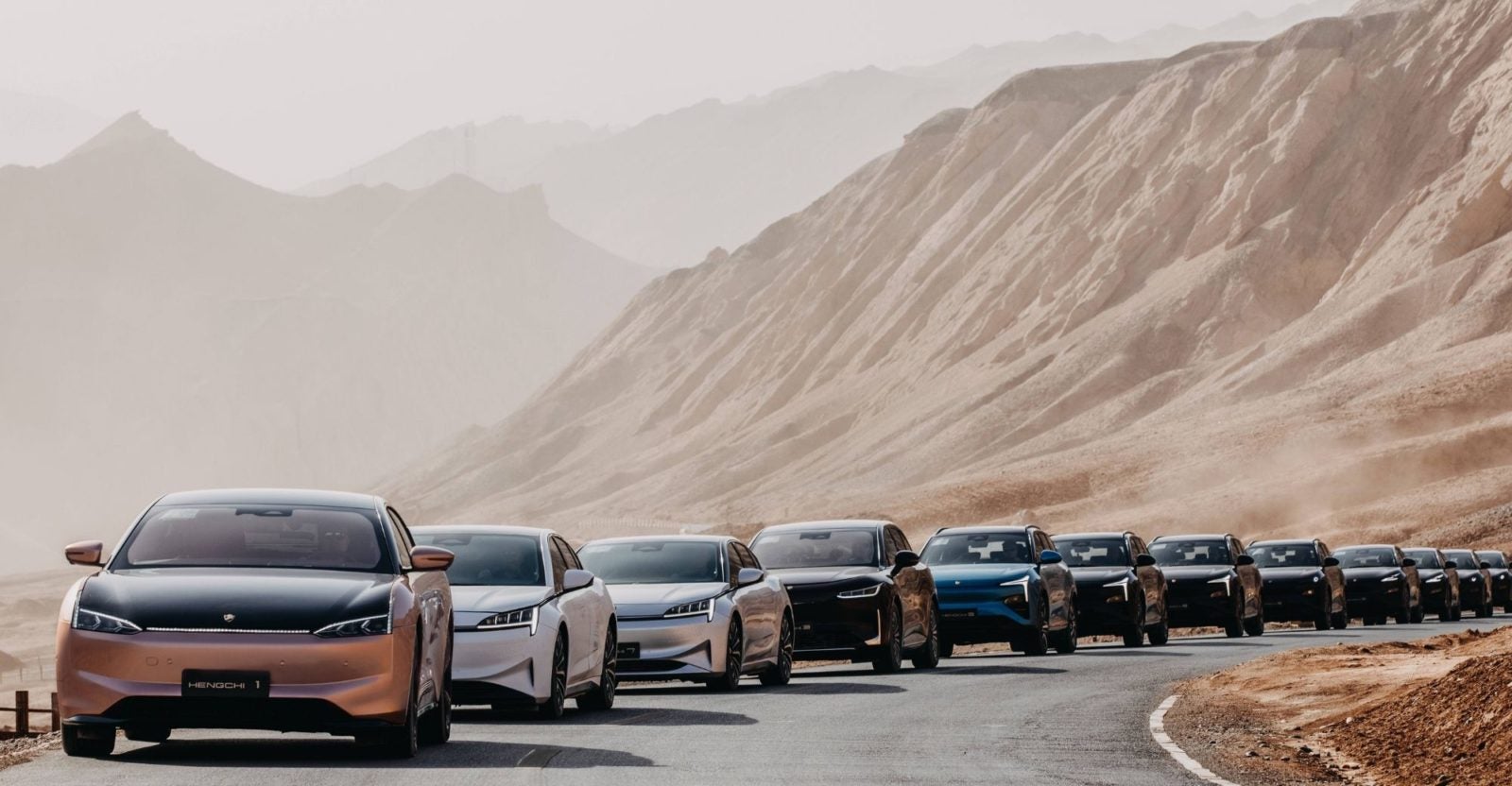
China has established itself as both the largest market for electric vehicles, and the largest EV producer thanks to the legions of EV and battery companies that have sprung up to take advantage of growing sales. While many Chinese companies entering the space have a background in automotive or adjacent industries, Evergrande stands as something of an exception.
Evergrande is primarily a real-estate developer – the second largest in China by sales – but it has a range of business interests including tourism, sports, entertainment and healthcare. In late 2018, the company made its first foray into the automotive world when it bought the struggling premium EV startup Faraday Future.

Discover B2B Marketing That Performs
Combine business intelligence and editorial excellence to reach engaged professionals across 36 leading media platforms.
Faraday Future sprang up in 2014 and eventually revealed its FF91 concept car. The luxurious part-estate-part-SUV was said to offer 1,000hp from its electric drivetrain, a 200mph top speed, autonomous functions, and a range in excess of 300 miles – figures that would comfortably beat its main rival, the Tesla Model S, at the time. However, as the costs of finalizing the car’s design and tooling up for production mounted, concerns over Faraday Future’s viability began to grow.
Evergrande’s offer of help came at the end of 2017 in the form of a $2 billion investment over three years, with $800 million up front. This would buy Evergrande a 45% portion of Faraday Future and set up the company to launch production and sales in China as well as North America. However, the relationship between investor and startup quickly soured with the two litigating against each other for alleged contractual failures.
After the reputations of both companies were damaged by the disagreement, Evergrande agreed to restructure its Faraday Future investment, paring its ownership back to 32%, in return for complete control of the business in China. Faraday Future has yet to begin producing the FF91 but is targeting July 2022 for first deliveries, although progress may be hampered by the impact of a short-seller’s report in October 2021 which accused the company of faking vehicle reservations.
With the Faraday Future tie-up mostly resulting in failure, Evergrande’s next move was to acquire a stake in Sweden’s NEVS – the company that bought Saab’s assets after the historic Swedish automaker went out of business in 2012. Evergrande bought a 51% stake in early 2019 and, by mid-2020, had purchased all remaining NEVS shares. While NEVS had an electric vehicle based on the old Saab 9-3 nearly ready for production, Evergrande saw more value in its suite of EV technologies and R&D resources. Shortly after taking over NEVS, Evergrande cancelled plans to build the 9-3 EV, with the Trollhättan, Sweden plant now focusing on building an autonomous shuttle called the Sango, after plans to build an EV with bodywork that incorporated solar panels with a German startup fell through.
In November 2019, Evergrande announced its own brand of EVs under the Hengchi marque. Over the next two years, Hengchi would show nine concept cars numbered 1 through 9 – all battery-electric powered and all either an SUV or sedan bodystyle, barring one MPV-shaped vehicle. However, despite building out a clear product plan, no salient details were released regarding the vehicle’s powertrains, nor where they would be built other than at one of the three Evergrandeowned facilities in Guangzhou, Shanghai or Tianjin. Initial plans were to begin production towards the end of 2021, but that target has now been pushed back to early 2022.
The company is the most heavily indebted property developer in the world, with around $300 billion in liabilities due by April 2022.
Evergrande’s battles to get an electric vehicle to market are taking place at a particularly risky time for the conglomerate. The company is the most heavily indebted property developer in the world, with around $300 billion in liabilities due by April 2022. The extreme debt position has come about thanks to the company aggressive expansion strategy during China’s property boom which began accelerating in the 1990s. Driven by a seemingly ever-growing economy and easy credit, the company launched one construction project after another and has led to a phenomenon known as ‘ghost cities’ in China where entire new urban areas are built, complete with homes, shops and offices, but very few people actually moving there.
Now, Evergrande finds its position rocked by multiple concurrent disruptions – the COVID-19 pandemic, the subsequent chip shortage, a general slowing of Chinese economic growth exacerbated by recent trade wars with the US, and the commitment by Chinese authorities to crack down on uncontrolled lending and, in the words of Chinese leader Xi Jinping, the building of houses for “speculation” rather than inhabitation.
With these risks to its business, there should be serious question marks placed on Evergrande’s EV plans because the company will probably need to spend billions more before it is ready to begin production. At this rate, the 2022 launch date for its Hengchi EV lineup seems ambitious at best.
See also:
Evergrande targets EV production in early 2022
https://www.just-auto.com/news/evergrande-targets-ev-production-in-early-2022/






